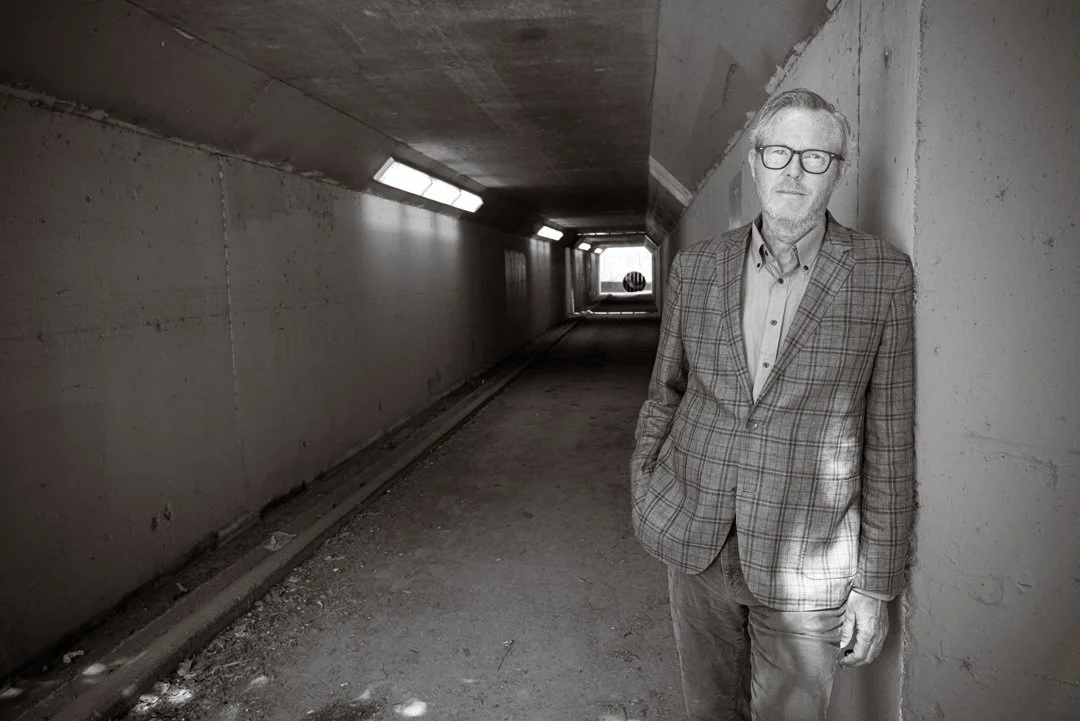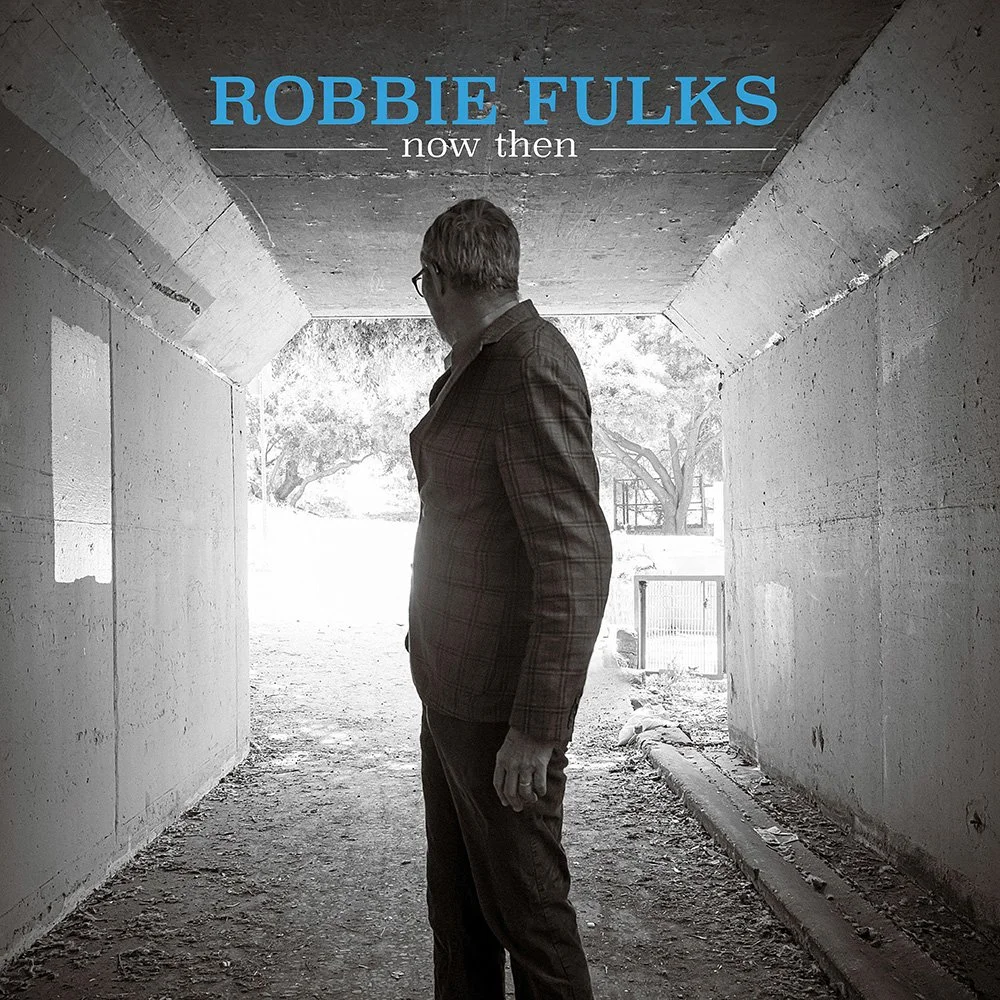
Robbie Fulks
Robbie Fulks – Now Then
“It’s time to make a change,” Robbie Fulks declares at the start of Now Then, his second album on Nashville’s Compass Records. This statement is familiar to anyone who follows this critically acclaimed and GRAMMY-nominated singer-songwriter’s career. Since emerging in the 1990s as a pioneer of today’s Americana movement, Fulks has consistently explored different sounds, genres, and themes across 16 albums, performing on stages from the Grand Ole Opry and Late Night with Conan O’Brien to the Hollywood Bowl and Jimmy Kimmel Live with Steve Martin, Alison Brown, and Tim O’Brien.
That restless spirit lies at the heart of Now Then. Like a well-stocked jukebox in your favorite bar, the 12 songs on Now Then range from folk to power pop, jazz to old-time country. But the perspective threaded through each one comes from the realization that the time behind you spans a greater distance than what lies ahead. “It’s from an older person’s outlook, and mostly true,” Fulks says. “The tone is about 70 percent reflective, 20 percent amused, and 10 percent angry.”
Indeed, the album opener “Workin’ No More Blues” quietly resists a world that demands greater conformity by the day: “Now I’m weary of those around me/And I know for sure they’re sick of me/They say I won’t do as I’m told/They say I’ve lost the thread/I’m too old.” The aged narrator of “Savannah is a Devilish Girl” — a dance between banjo and fiddle — dreams of disappearing into rural life. Love appears in the song “The Thirty-Year Marriage” as something more potent than romance. The narrator and his wife smile at young couples who don’t yet realize what only years reveal: “We didn’t fall out of love/We fell into rhythm.”
A constant across Now Then is the novelist’s eye for lyrical detail. Peeling back these story songs often uncovers harsh truths, as in “Your Tormentors,” where the music’s late-night setting hides family secrets. In “That was Juarez, This is Alpine,” a narrator describes a cross-border journey into a troubled landscape of political division and historical injustice, with the music providing an epic sweep. And “Ocean City” tells a coming-of-age story set in summer 1974, narrated by a young boy. Adults drink and play gin rummy, and the boardwalk holds lifelong desires. “The girl downstairs/Has wavy yellow hair/That I’ll be seeing a long time in dreams,” Fulks sings.
Throughout his career, Fulks has collaborated with some of music’s most distinguished artists, including Lucinda Williams, jazz violinist Jenny Scheinman, bluegrass pioneers Sam Bush, Jerry Douglas, Alison Brown, and Sierra Hull, singer Kelly Willis, NRBQ’s Al Anderson, and steel guitarist Lloyd Green. Now Then expands this circle with contributions from Scheinman, drummers Pete Thomas (Elvis Costello) and Jay Bellerose (Aimee Mann, Robert Plant, Alison Krauss), bassist Paul Bryan (Aimee Mann, Jeff Parker), keyboardist Wayne Horvitz (John Zorn, Bill Frisell), guitarists Duke Levine (Bonnie Raitt, Peter Wolf) and Kevin Barry (Jackson Browne, Rosanne Cash), and accordionist Pepe Carlos (La Santa Cecilia), among many others. As an ensemble, they craft intertwined musical textures that drive each song’s rhythm, highlight their personalities, and add depth.
Now Then can be seen as Fulks’ proper “L.A. record,” as it’s his first complete collection of songs written since moving to Los Angeles in 2019, featuring musicians he connected with soon after arriving. “Working with people I admired on records but had never met, who I was just starting to meet — that was at the front of my mind when I started working on the songs,” he said. “They influenced me when I was trying to put the songs on the page, and later when I was bringing them to life.”
Robbie Fulks has always been more than a conventional country singer and songwriter. After growing up in North Carolina and spending time in New York City, Fulks began his professional music career playing bluegrass in the band Special Consensus before emerging as a solo artist in Chicago during the mid-1990s. His early albums received nationwide praise for blending a modern sensibility with honky-tonk country. His creative partnership with the late Steve Albini resulted in a string of highly regarded albums, showcasing his sharp lyrical wit, sophisticated instrumentation, and inventive storytelling.
Along the way, Fulks gained recognition for his instrumental virtuosity and powerful songwriting. Artists like Sam Bush, Andrew Bird, John Cowan, the Old 97’s, and Hiss Golden Messenger have covered his songs, and he has released full albums reinterpreting the works of Michael Jackson and Bob Dylan, along with two collections of unreleased songs and rarities totaling 103 tracks. His creative ventures include an unhinged 2013 collaboration with the punk legends The Mekons, productions of albums by alt-country songwriters Brennen Leigh and Dallas Wayne, and a fiery duo with rockabilly pioneer Linda Gail Lewis. Fulks also performs with comic improvisers; he is a regular at Second City’s holiday fundraisers and has shared the stage with talents like Michael McKean, Tina Fey, Bob Odenkirk, and Fred Armisen.
Fulks resides in Los Angeles with his wife, actress Donna Jay Fulks.
PRESS RELEASES
SEPTEMBER 5, 2025 AMERICANA PIONEER ROBBIE FULKS SHARES NEW ALBUM NOW THEN
VIDEOS




